Rain has come back to Northland in the past few days. It's a blessing to see conditions like these in the summer months as soil moisture levels won't be improving from now. Silage making is in full swing in Canterbury and vineyards are at the tail end of shoot thinning in Central Otago.
Rain has come back to Northland in the past few days. It's a blessing to see conditions like these in the summer months as soil moisture levels won't be improving from now. The rain hasn't been heavy but is still a nuisance for those getting crops in the ground and due to make silage. Stock's looking good with plenty of grass around and very few supplements needed. This time of year it's usually scorching hot and feed supply would be low.
By the end of the sunless week in Pukekohe, brisk and gusty easterly winds dried the countryside providing opportunities for growers to tend to their crops but as Christmas Day approaches, wet days are forecast.
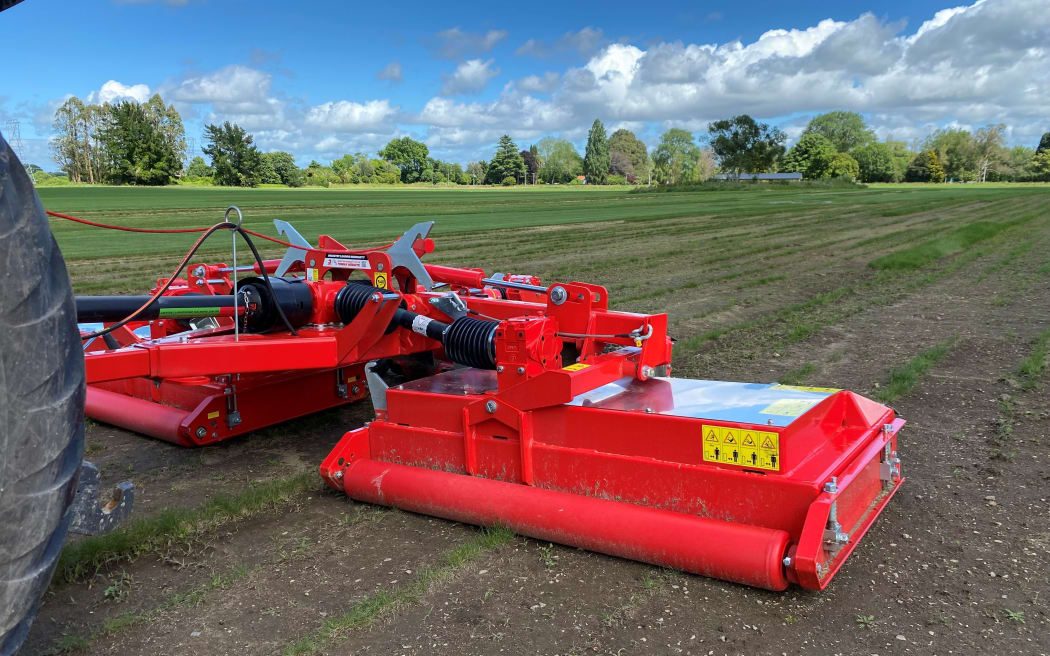
Sparkling new mower on a turf farm in Waikato. Photo: RNZ/Leah Tebbutt
Everything seems to be a good two weeks late in Waikato this season. Our contact was looking for the predicted rain when we called, he had his silage contractors booked for this week after the ground was waterlogged from the end of November. However, rain on the horizon made him cancel...yet the rain has not arrived and there is dust everywhere. The contractors are booked again for Monday although the quality will be gone, the bulk will be up. Milk production around the region seems to be down around nine per cent.
It's been hot and dry in Bay of Plenty this week, and rain's said to be coming for the next couple of days. Sunshine is what both the paddocks and cows need ... our contact has started counting rainfall in metres and not millimetres. She says she's never seen it as wet as it has been this year - and she's farmed for over 40 years. It's been hard to get any work done. But the cows are milking well, bulls will be out at the end of the month and it's been a good season, all things considered.
Puddles have dried up in Taranaki with moisture levels down this week after little to no rain. The grass has gone into a reproductive state, although the silage paddocks are coming back nicely after they were cut near the end of last month. The yield of silage was good, not super bulky, and every bit will be precious. Our contact has no more maize as a supplement left in the pit but says her herd is managing to hold nicely, still ticking over 15,000 litres of milk a day in the week since they ran out. Mating has started to go quiet now too.
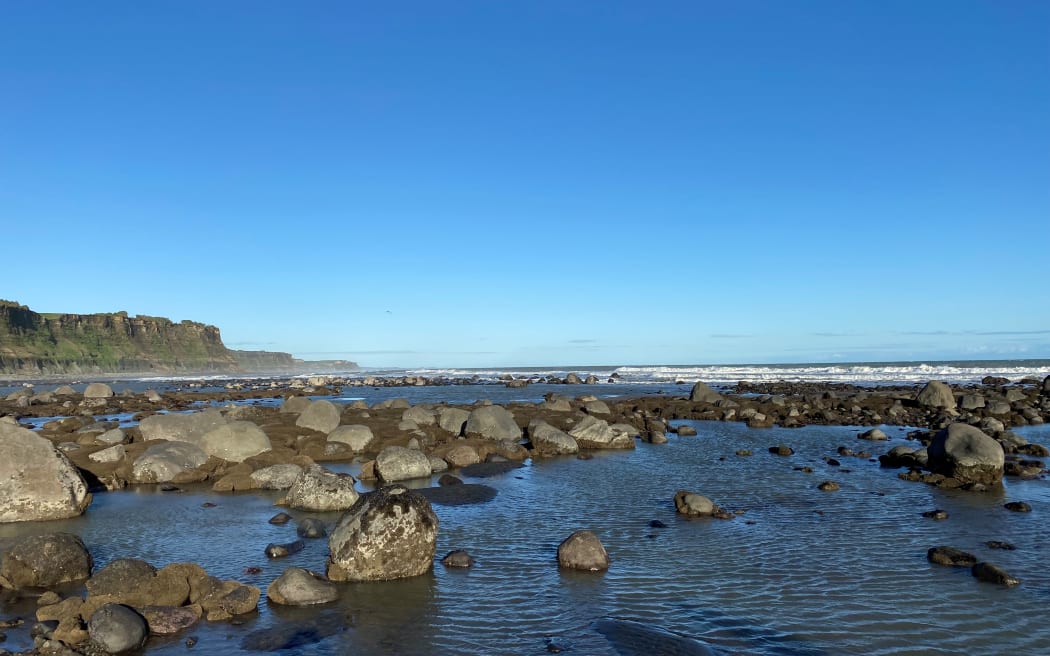
Sunny blue skies graced Taranaki this week. Photo: Supplied/Magnus Fraser
Fly strike is proving an issue on the East Coast. With consistently wet weather, comes consistently wet wool and farmers are flat-out trying to deal with it. Maize is still being planted or re-planted in some places where it has been drowned. It's been a difficult season to get it in, having to cram three months of work into one due to the endless rain. Our contact says volcanologists warned of heavy rainfall as a result of the Tongan eruption in January. Grass and stock are both growing like mad thanks to the rain and warming conditions - although our contact is used to wearing shorts from mid-September and only chucked them on three weeks ago with temperatures still only 16 degrees.
Spray trucks in Manawatu are growing frustrated with windy conditions and weather that is not behaving. The workers are said to be tearing their hair out over the mountain of backlogged work. Everything is all go with shearing, weaning, getting crops in the ground and baleage being made. Frustrations are also rising as grass doesn't want to grow, with no real guts to it. There is a bit of feed around but milk production is down, and so is the schedule to get ewes killed - it's not doom and gloom but farmers are said to be down in the dumps after a tough spring season.
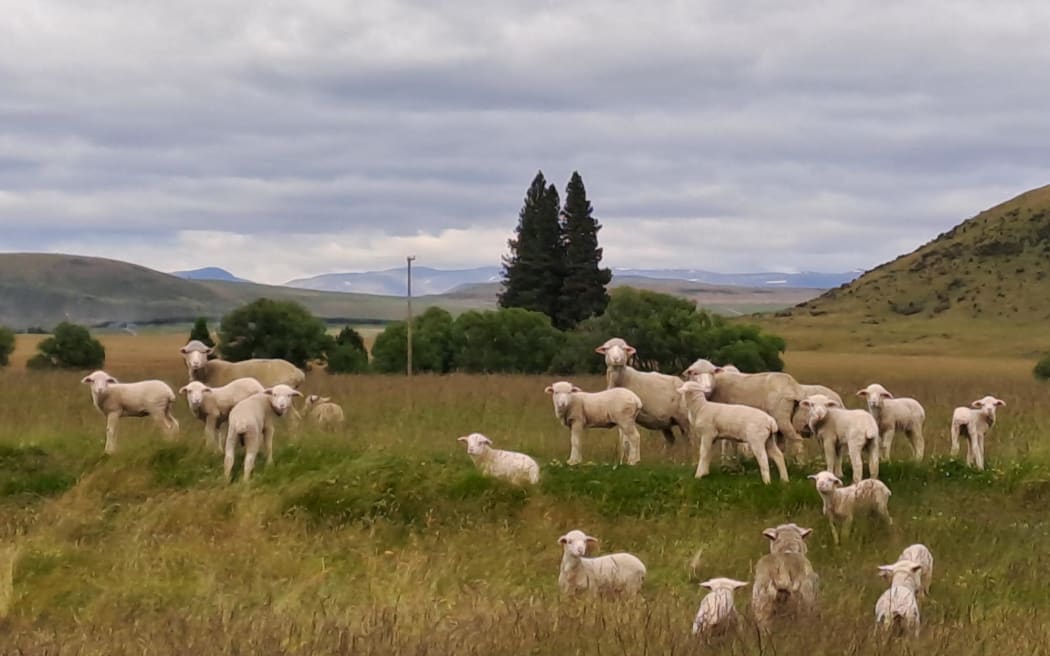
Nosey sheep in Central Otago. Photo: RNZ/Susan Murray
Overcast conditions are sticking around in Horowhenua. Phenomenal grass growth has allowed big silage crops to be harvested. However, strawberries are missing the sunshine and are quite slow to get going this season. Asparagus has a week and a half to go and is tailing through it with good quality. It's the first time in a number of years our contact has been able to export small volumes to parts of Asia as a result of Australia's wet weather. Irrigators are popping up on farms this week on the back of a drying easterly wind.
Patches of settled weather in Wairarapa have seen people irrigating this week. Temperatures aren't anything over 22 degrees but the ground is drying out with a bit of a breeze. Things are finally running to normal for early December after spring saw most farmers running behind. Maize and summer crops are doing well thanks to the rain which gave them all a good start, although they were planted late due to the rain. It's now a matter of getting things done before Christmas.
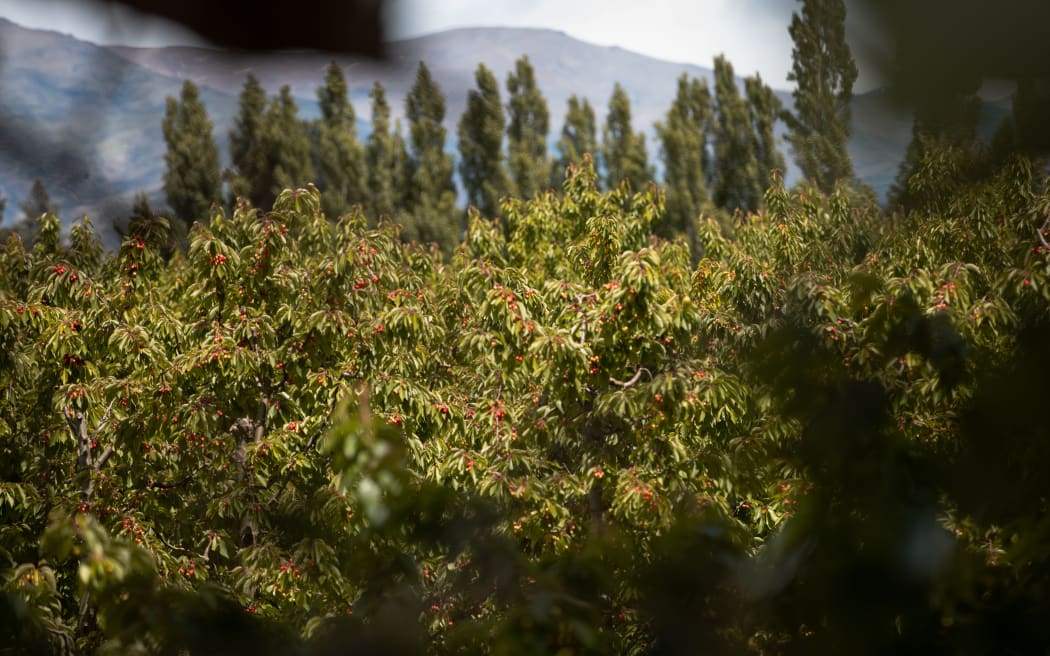
Cherry trees in Central Otago Photo: RNZ / Samuel Rillstone
In Wakefield, near Nelson, temperatures have been in their mid-20s all week. Things are starting to dry out, but there is hope to get a wee bit out of the rain forecast this weekend. Hop crops are now into monitoring as growers turn their minds to getting everything ready for the harvest in March. Our contact has all his staff lined up already - a group of Czech backpackers who worked through the training season and are ready to come back after the cherry-picking season in Cromwell.
Rain is on the radar on the West Coast. It's been warm and dry which has been good for silage up and down the coast but there is a rush now to get it all finished before the wet weather this weekend. Our contact says she is doing the second round of herd testing this week - getting milk samples from each cow to see who the top performer is. It's an indication of good herd management for the season ahead. This time of year sees many getting those critical jobs done so they can take a well-deserved break over Christmas and New Year.
In Canterbury, cool mostly overcast conditions have dominated this week. Crops, animals and humans are hanging out to see some sun. Grass growth is now good and silage-making is in full swing. However, some dairy farmers are still feeding out as a consequence of the poor spring that is still lingering.
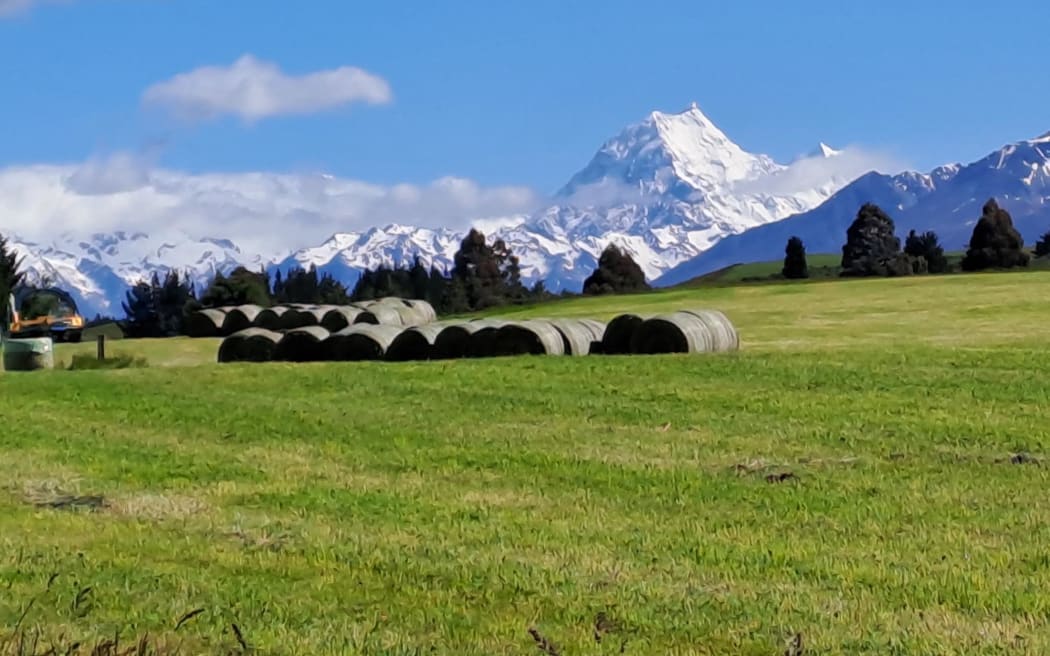
Baleage cut and ready for the season ahead. Photo: RNZ/Susan Murray
In Otago, grass growth is running rampant. But it's proving difficult for silage to be cut with sprinkles of rain falling every day. Our contact has 240 hectares to be mowed - it was planned for Friday but the rain has put it off yet again. His farm has had 200 millimetres less rain this year than the yearly average, due to the late Summer drought conditions. However, the land is looking good at the moment and he is hoping it stays that way. Mating is also at the tail end now with 60 cows out of a 900 herd left.
Vineyards in Central Otago are at the tail end of shoot thinning this week. Flowering is rushing through now which is gratifying after the October frost. Flowers normally bloom in early December and so far it looks like they have avoided any damage from the cold Spring. However, labour shortages are causing headaches for many with zero Kiwis and zero backpackers around. Those in the co-operative are sharing staff to ease workloads and ensure the vineyards don't lose their crops. The hacking of government systems in Vanuatu has seen a delay in RSE workers arriving in New Zealand also, with our contact describing it as an absolute unmitigated disaster. With vineyards being very labour-intensive, the lack of it impacts the quality of the yield.
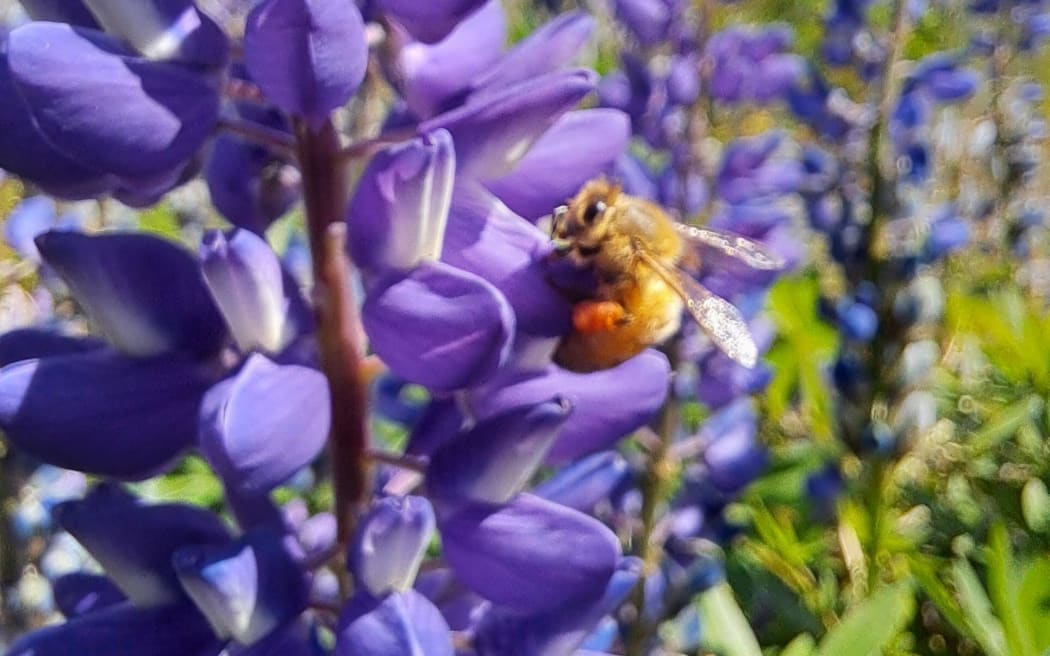
Busy bees in the Summer sun. Photo: RNZ/Susan Murray

